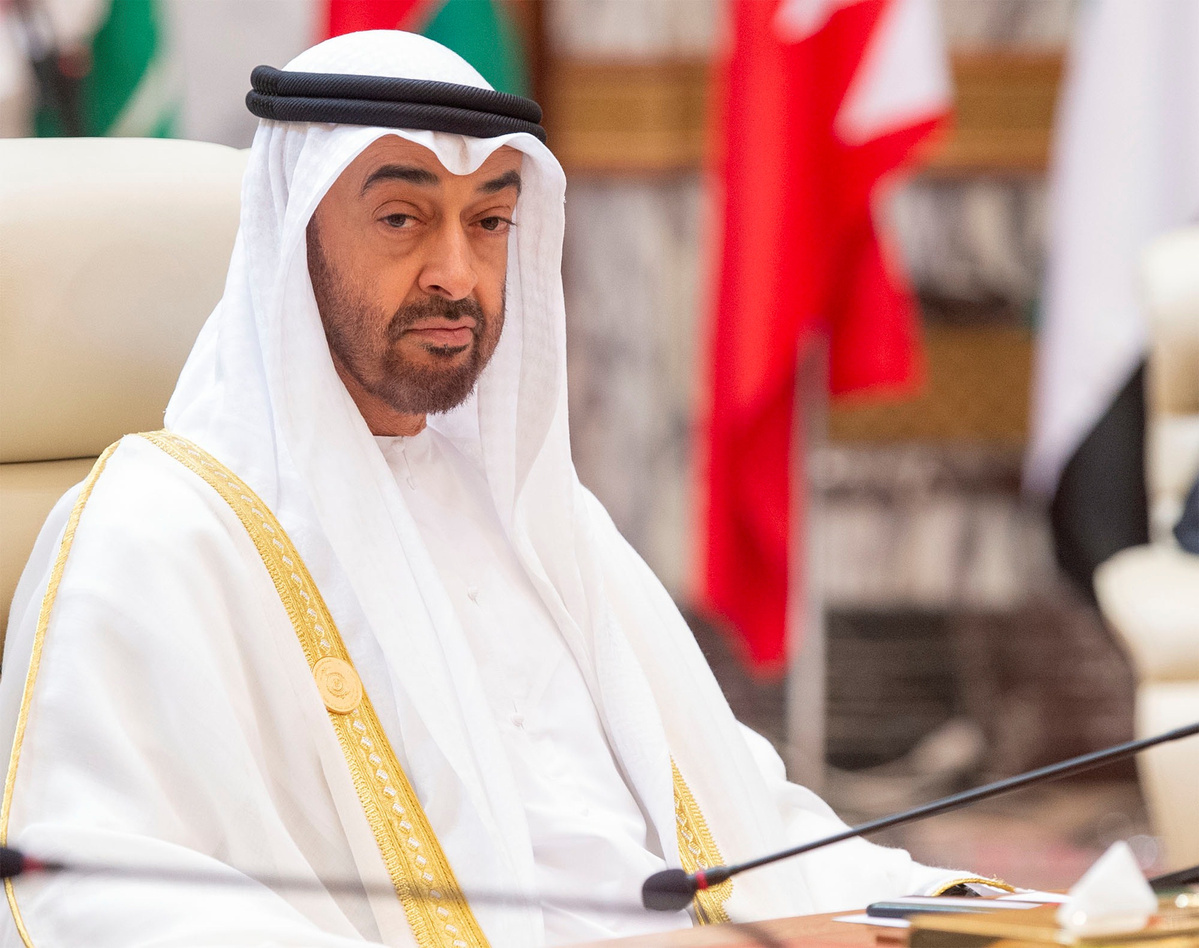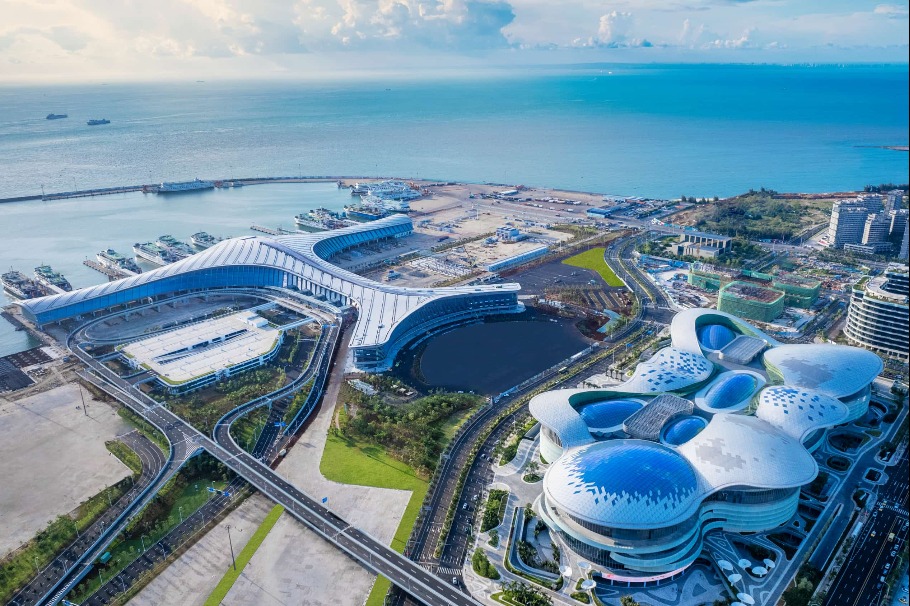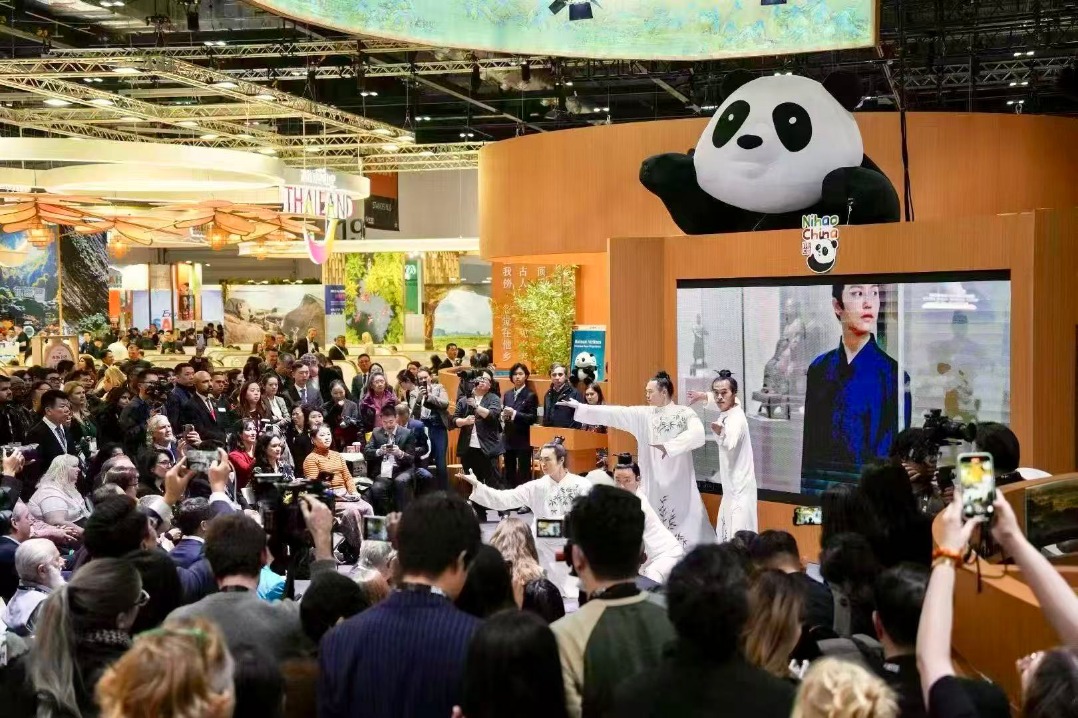A perspective on 35 years of flourishing partnership between the UAE and China
By Khaled Khalifa Dehai Al Kaabi | chinadaily.com.cn | Updated: 2019-07-23 11:43

The visit of Sheikh Mohamed bin Zayed Al Nahyan, crown prince of Abu Dhabi, and deputy supreme commander of the United Arab Emirates armed forces, to the People's Republic of China, marks a new milestone in the growing relationship between the two countries.
In 1971, the late Sheikh Zayed bin Sultan Al Nahyan, the UAE’s founding father, wrote to the former premier of the PRC, Zhou Enlai, to inform him of the establishment of the UAE Federation. Zhou replied in a message affirming China's recognition of the UAE, and congratulating him on the establishment of the new state.
The next step was the establishment of full diplomatic relations between the two countries in 1984. In the following year, an embassy of the People's Republic of China was opened in Abu Dhabi, and in March 1987, the embassy of the United Arab Emirates was opened in Beijing. In 1989, then-president Yang Shangkun visited the UAE, marking the first visit by a Chinese leader to the UAE.
Less than a year later, in May 1990, came a further historic step in the development of close relations between the two countries, with the visit of Sheikh Zayed to China, as his far-sighted vision was that China would be both a major global, economic, and political power in the international arena. That visit was the first of its kind by a head of state at the level of the Gulf Cooperation Council countries to China, representing a pivotal moment in the rapidly growing relations in the political, economic, cultural and media levels between the two countries.
Sheikh Mohamed bin Zayed Al Nahyan has followed the example of his late father, thus fostering continued cooperation and warm relations, with the three historic visits he has paid to the People's Republic of China. The first was in 2009, the second in 2012 and the third in 2015. Now comes the fourth visit, during which Sheikh Mohamed will discuss with President Xi Jinping, as well as senior Chinese leaders, and officials, ways and means of promoting friendly relations, and to develop comprehensive strategic cooperation between the two countries in various fields.
This is in addition to discussing regional and international issues of common concern, and strengthening strategic partnerships between the two countries in the economic arenas.
On the economic front, the UAE views China as an important emerging market, while Chinese investors are increasingly optimistic about the potential and prospects of the UAE market. In 2017, China became the UAE's first trading partner. Non-oil trade between the two countries reached $53.3 billion in that year, and in July 2017, a cooperation agreement, and another one to invest in the Model Area, were signed between the two countries.

In December 2017, China's National Development and Reform Commission confirmed that the Model Area is the first productive cooperation area in the country within the Belt and Road Initiative.
The participation of the UAE’s vice-president, prime minister and ruler of Dubai, Sheikh Mohammed bin Rashid Al Maktoum, at the Belt and Road Forum in Beijing last April, with more than 40 top international leaders, was to help foster this vision, and consolidate the UAE's role in promoting global economic growth.
Nearly 15 percent of the UAE's total oil exports go to China. In return, the past few years have seen the flow of Chinese investment into the UAE, which is backed up by the 300,000 Chinese citizens who live and work in the UAE.
The number of Chinese companies operating in the UAE amount to nearly 4,200 companies. Of this number, 170 are large companies, whereas the remaining numbers are medium and small-size companies, not to mention 2,500 Chinese registered brands.
Most of the Chinese investments, totaling nearly $2.8 billion, are active in the contracting, engineering, trade, insurance, transport and real estate sectors.
Chinese companies and investors view the UAE as China's gateway to the region, and to the world, and so Chinese companies have chosen the UAE as a venue and a showcase for their products to the world. China has sought to take advantage of the great capabilities provided by the UAE, to the global and regional trade movement through its developed infrastructure, efficient port services, free zones and customs services, which provide traders and investors with real added value that enhances the returns of their business operations.
The latest partnerships and projects implemented by foreign countries were the Chinese COSCO Shipping Ports Ltd, being the first by the world's number one shipment company in the UAE’s Khalifa seaport.
Among the mega-projects to be launched is the Merchants Market complex, which will be constructed in Dubai to store and ship Chinese goods to the world. The project underlines the UAE's role as a strategic partner, and a global hub for the Silk Road. The UAE also will contribute to the revival of this historic trading route, and will help the world create a proper climate for economic development, thus serving as an international economic and trade hub link.
The UAE will join the Belt and Road Initiative launched by China in 2013, which estimated the volume of Chinese investments at $900 billion, and which is expected to double the economic gains of the UAE.
Trade between the two countries is expected to increase to step up to $70 billion by 2020, and the UAE is expected to see a huge influx of Chinese tourists, after it has already become the most popular tourist destination for Chinese and Arab tourists in the Middle East. In 2017, the number of Chinese tourists to the UAE exceeded 1 million for the first time, and nearly 3.5 million tourists arrived there in transit. In 2017, the UAE became the first country in the Middle East whose citizens are exempted from visas to visit China.
"Strengthening the relationship with the People's Republic of China represents a strategic trend for the UAE under the leadership of Sheikh Khalifa bin Zayed Al Nahyan, president of the UAE, Sheikh Mohamed said during his visit to China four years ago.
"The momentum of relations from past decades of friendship and cooperation and the shared interests in various fields represents a solid foundation for a great start to our future relations," he said.
This is how Sheikh Mohamed perceives China, and highly values the ties and relations with it, and he is looking forward to further boosting them.
"Despite the great development of economic and trade relations over the past years, there are common aspirations for further development in the coming years, especially as there are great potentials and opportunities for such advancement," he said during his visit.
Sheikh Mohamed Bin Zayed's visit to China will further consolidate such vision, cement bilateral cooperation and partnerships, and push forward bilateral relations based on friendship, mutual respect and common interests.
The author is Director General of Al Ain News Corporation.
The opinions expressed here are those of the writer and do not necessarily represent the views of China Daily and China Daily website.
























